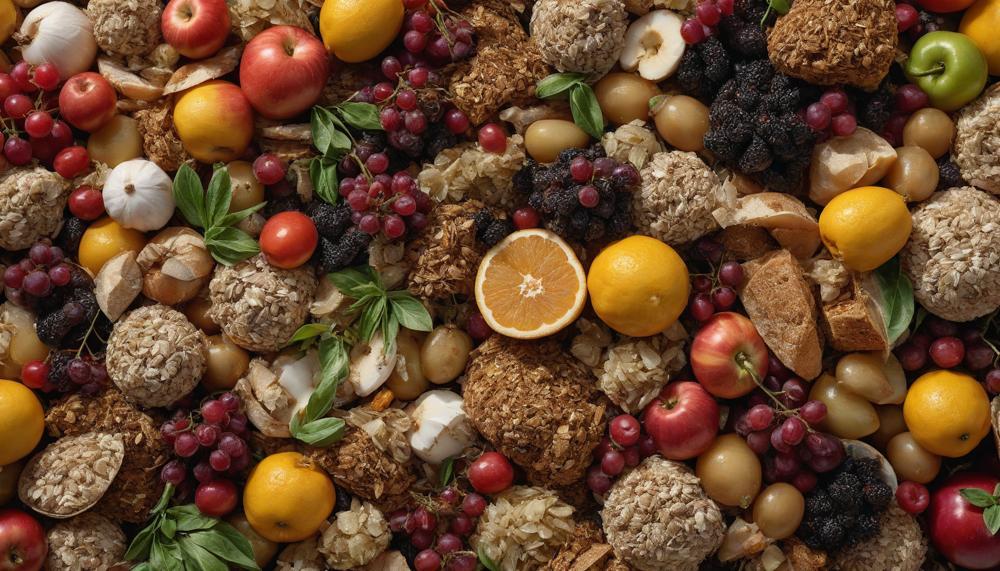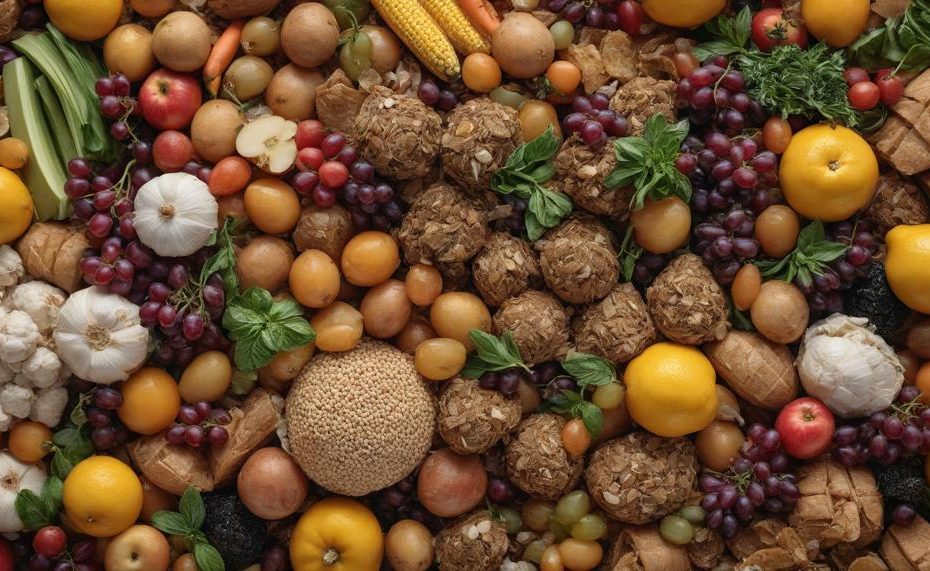Are you tired of watching food scraps pile up and wondering how to dispose of them responsibly? Disposing of food waste at home doesn’t have to be complicated. Composting is an effective way to turn your organic waste into nutrient-rich material that can fertilize your plants and improve soil quality.
Not only does this benefit your garden, but it also helps filter out pollutants from stormwater, keeping our waterways cleaner.
Here are some quick takeaways to get you started:
- Compost at Home: Easily manage food scraps by setting up a compost bin in your backyard or even in your kitchen.
- Municipal Programs: Check if your city offers food waste collection bins or curbside pickup for composting.
- Prioritize Prevention: Aim to reduce food waste by planning meals and donating surplus food before resorting to composting.
- Environmental Impact: Healthy soil from composting helps filter pollutants and promotes a greener environment.
By incorporating composting into your routine, you can make a significant positive impact on your garden and the planet. Ready to get started? Let’s dive into the world of home composting.
Contents
Reducing Food Waste
Reducing food waste at home can be achieved through several practical and straightforward strategies. Here are some effective ways:
| Strategy | Description |
| Create a Meal Plan | Design a weekly menu to ensure you buy only what you need. This reduces the chance of food spoilage. |
| Organize Your Fridge | Use the First In, First Out (FIFO) method. Place newer items at the back and older items at the front to ensure they are used first. |
| Store Food Properly | Keep food in air-tight containers, and ensure perishable items are stored at the correct temperature to prolong freshness. |
| Freeze Leftovers | Preserve extra food by freezing it. This prevents spoilage and provides easy meal options for busy days. |
| Compost Inedible Scraps | Convert food waste into nutrient-rich compost to improve soil quality. This reduces landfill waste and benefits your garden. |
| Keep a Log of Spoiled Foods | Track what foods spoil frequently. This helps identify patterns and adjust purchasing habits accordingly. |
| Designate a “Use Up” Shelf | Assign a specific area in your fridge or pantry for items that need to be used soon to avoid wastage. |
| Avoid Overbuying | Take inventory of your pantry, refrigerator, and freezer before shopping to prevent purchasing unnecessary items. |
| Use a Shopping List | Always go to the grocery store with a list to avoid impulse buys that often lead to waste. |
Implementing these methods not only reduces food waste but also saves money and helps the environment by lowering the carbon footprint of food production and disposal.
Why Save Food Scraps?
Saving food scraps is vital for several compelling reasons:
Environmental Benefits:
Reduces Landfill Waste: When food scraps are repurposed instead of discarded, it significantly reduces the volume of waste sent to landfills. This not only conserves landfill space but also mitigates the production of methane, a potent greenhouse gas that contributes to global warming.

Promotes Composting: Food scraps can be composted to create nutrient-rich soil, which enriches gardens and landscapes, reducing the need for chemical fertilizers. This process recycles organic matter back into the ecosystem, fostering healthier soil and plants.
Economic Savings:
Cost-Efficiency: By repurposing food scraps, households can save money on groceries and gardening supplies. For instance, using vegetable peels and leftover herbs in homemade stocks or as plant fertilizers can cut down on expenses.
Resource Conservation: Utilizing food scraps reduces the demand for new products and resources, which in turn lowers the environmental impact of production and transportation.
Health and Nutrition:
Nutritional Benefits: Many food scraps, such as carrot tops and herb stems, are packed with nutrients and can be used in various recipes to enhance flavour and nutritional value. Incorporating these often-overlooked parts of food into your diet can contribute to a more balanced and wholesome meal plan.
Innovative Uses:
Homemade Products: Food scraps can be transformed into homemade beauty and cleaning products, such as using citrus peels for natural cleaners or coffee grounds as exfoliants, reducing reliance on commercial products that often come with packaging waste.
Practical Tips:
- Collection Container: Keep a designated container in the kitchen for collecting food scraps during meal preparation. This makes it easy to gather scraps for composting or repurposing without creating a mess.
- Regular Composting: Regularly transfer collected scraps to a compost bin or local compost facility to prevent attracting pests and to ensure efficient decomposition.
Examples of Food Scraps That Can Have a Second Life
Food scraps aren’t just waste; they’re hidden treasures waiting to be repurposed. Here are some clever ways to give your kitchen leftovers a second life:
| Food Scrap | Repurpose | Method |
| Vegetable Scraps | Vegetable Broth | Boil with water to make broth |
| Coffee Grounds | Fertilizer | Sprinkle around plants |
| Citrus Peels | Homemade Cleaner | Soak in vinegar |
| Bread | Breadcrumbs/Croutons | Dry and process/make croutons |
| Fruit Peels | Flavored Vinegar | Infuse in vinegar |
| Eggshells | Soil Amendment | Crush and sprinkle in soil |
| Potato Peels | Chips | Bake with oil and salt |
| Banana Peels | Fertilizer | Bury in garden soil |
| Herb Stems | Flavored Oils | Infuse in olive oil |
By reimagining how we handle food scraps, we can reduce waste and discover new, creative uses for items we’d normally throw away.
How To Dispose Of Food Waste At Home
| Method | Description | Details |
| Composting | Turning food scraps into nutrient-rich compost. | Set up a compost bin in your backyard or use a countertop compost container. Add vegetable peels, coffee grounds, eggshells, and more. This decomposes into rich soil for your garden. |
| Vermicomposting | Using worms to break down food waste. | Create a worm bin with red worms that consume kitchen scraps. The result is high-quality compost known as worm castings, which are excellent for plants. |
| Regrow Vegetables | Regrowing vegetables from scraps. | Place the roots of green onions, celery, or lettuce in water. They will regrow, providing a continuous supply of fresh vegetables. |
| Broth Making | Using scraps to make vegetable or bone broth. | Save vegetable peels, stems, and bones in the freezer. When you have enough, simmer them to make a nutritious broth. |
| Animal Feed | Feeding food scraps to animals. | If you have pets like chickens or rabbits, many food scraps like vegetable ends can be fed to them. Just ensure the scraps are safe for the specific animal. |
| DIY Cleaning Products | Creating natural cleaning solutions. | Use citrus peels to infuse vinegar, making a powerful, natural cleaner. This reduces chemical usage and repurposes waste. |
| Beauty Products | Making homemade beauty treatments. | Use coffee grounds as a body scrub, or avocado skins for face masks. These natural ingredients benefit your skin and reduce waste. |
| Municipal Green Waste Pickup | Participating in local composting programs. | Many cities offer green waste bins for curbside pickup. Check with your local waste management for composting options. |
| Homemade Vinegar | Fermenting fruit scraps to make vinegar. | Apple peels and cores can be fermented with water and sugar to produce apple cider vinegar, useful in cooking and cleaning. |
Repurposing food scraps not only reduces waste but also enriches your home and garden.
Conclusion
Taking control of food waste at home can transform your kitchen into a sustainable powerhouse. Composting is an easy and effective method to repurpose organic waste, turning it into nutrient-rich compost that benefits your garden and the environment. By setting up a compost bin in your backyard or kitchen, you can manage food scraps efficiently, reduce landfill waste, and create healthier soil that filters pollutants.
To further minimize waste, utilize municipal programs offering food waste collection and prioritize prevention by planning meals and donating surplus food. These steps not only decrease waste but also save money and support a greener planet.
Adopting these strategies will empower you to make a significant positive impact on your household and the environment.





